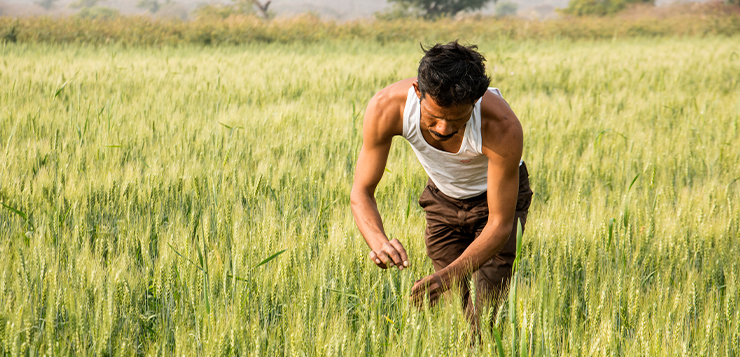
It is estimated that almost 50-60% of Indian farm exports are likely to be hit by the implementation of European Sustainability standards due to the lack of investments in technology, training, alternate products and systems which would be required to meet the stringent European sustainability standards that are coming into place.
According to the Indian Tea Association, India exported approximately 200 million kg of tea in 2022, with the EU being a significant market. For coffee, India exported around 350,000 metric tons in 2022, with a substantial share going to Europe. India exported textiles and apparel worth over $40 billion in 2022, with the EU being a major destination.
The requirements for traceability and detailed environmental impact data throughout the tea and coffee product lifecycle could raise compliance costs for Indian tea producers and exporters. Similarly, over 50% of India’s coffee exports in 2022 went to the EU, so the DPP regulation poses a significant risk for this sector. The DPP’s requirements to prove coffee was produced without deforestation or degradation after 2020 could impact Indian coffee exports to Europe.
The increased compliance costs and sustainability standards under ESPR are likely to erode the price advantage Indian coffee exporters currently enjoy, potentially hurting their competitiveness in the European market. Overall, the DPP regulation is expected to increase costs for Indian tea and coffee exporters due to the need to comply with stringent traceability and sustainability requirements. This could impact India’s price competitiveness in the European market, though the exact monetary impact is difficult to quantify at this stage
India exported $1.2 billion worth of tobacco, making it the largest tobacco exporter in the world. In a short span of two years, Indian tobacco exports have leapfrogged to the top spot from the third spot between 2022 and 2024. According to government estimates, in FY 2023-24, exports of Tobacco grew by a whopping 19.46%. Recently, Union Commerce and Industry Minister Piyush Goyal informed that the export value of un-manufactured tobacco and tobacco products had surpassed all the records at Rs 12,005.80 crore (USD 1.5 billion).
However, the entire agriculture and textile export industry and the fate of the farmers are in danger as Indian tea, coffee, tobacco and textiles are not geared to meet many of the European Sustainability standards and are likely to fall behind the Carbon neutral and net-zero goals being set by global tobacco companies to whom Indian tobacco is exported.
Indian farmers will need a large infusion of technology, resources and investments in order to be able to meet up with the requirements of EU Sustainability Standards. Much like the disruption that ISO standards had caused to the services and manufacturing sector and Euro Standards to the automotive industry, the farm exporting sector is likely to face an even larger disruption from Sustainability standards. Without the know-how and wherewithal, the export market is likely to face a huge hit.
FDI is essential to sustain Indian farm exports all the way from water management, drying and curing produce (especially in the case of tea and tobacco) disease and pest resistant tobacco to implementing global track and trace methods.
Slipping Behind Net Zero Goals of Industry
The tea, coffee, cereals and tobacco growing industry is not only far from being carbon neutral or net zero, but little effort is being made to equip it to become compliant with norms being established in major export markets such as Europe.
This is unlike the Southern textile industry, which is heavily dependent on exports. For example, Tiruppur’s significance as the heart of India’s cotton knitwear exports contributes a staggering 90% to the nation’s foreign exchange earnings. After the European Union’s announcement of the Carbon Border Adjustment Mechanism (CBAM), the importance of environmental sustainability gained momentum. The Tiruppur knitwear cluster has made huge investments in zero liquid discharge, green energy and tree plantations to ensure that the Tiruppur cluster became an ESG (Environment, Social and Governance) compliant cluster. It is seeking large investments to fill the gap, as a CII report claims that only about 60% of Tiruppur industries have made necessary investments.
